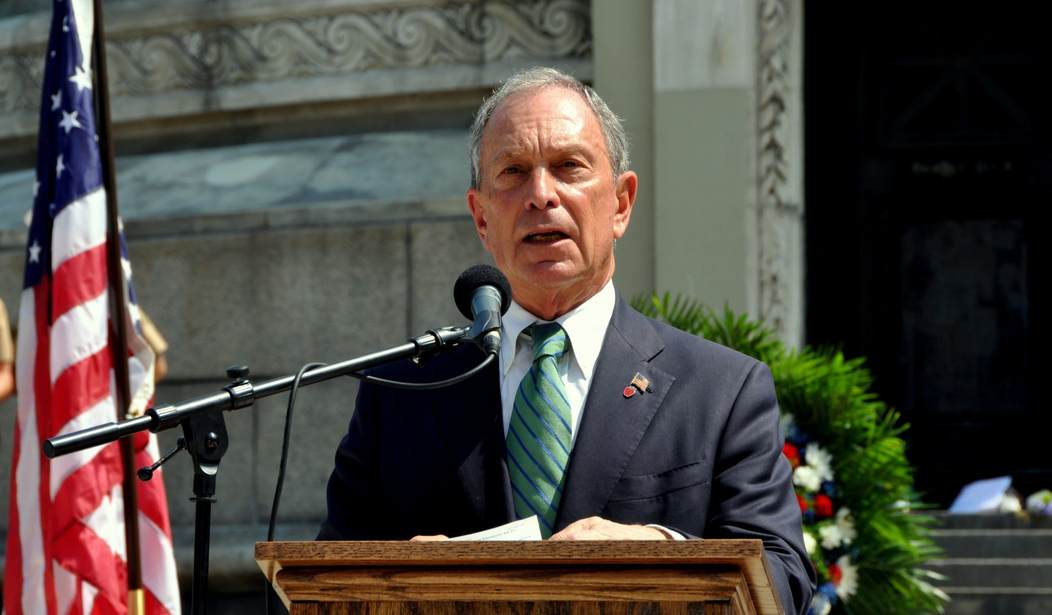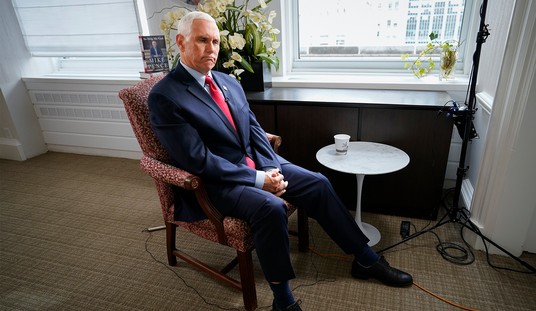Former New York City Mayor Michael Bloomberg has a surprisingly free market, small government message for climate alarmists — America can fight climate change without help from Washington, D.C. Yes, really.
“No matter what roadblocks the White House and Congress throw up, the United States can — and I’m confident, will — meet the commitment it made in Paris in 2015 to reduce greenhouse gas emissions that are warming the planet,” Bloomberg wrote in The New York Times this past weekend. Mentioning the “War on Coal” specifically, the former mayor and business magnate argued that coal is dying out on its own, supposedly without the need for federal intervention.
Bloomberg noted that more than 250 coal plants, almost half of the total number in America, have announced they will close or switch to cleaner fuels. “Washington isn’t putting these plants out of business; the Obama administration’s Clean Power Plan hasn’t even gone into effect yet,” he wrote.
Here’s the money quote: “There is virtually nothing the Trump administration can do to stop advanced technology and consumer preferences from driving down coal’s market share still further.”
For climate change skeptics, this might sound scary at first, but it is (mostly) good news. It means the alarmists don’t need to push job-crushing regulations on the federal level, they can let the free market push their goals.
Bloomberg noted that when the U.S. made the commitment in Paris, “we were already about a third of the way” toward reducing greenhouse gas emissions 26 percent below 2005 levels by 2025. He cited the Sierra Club’s Beyond Coal campaign, which projects that more plant closings will push America to two-thirds of that goal.
The former NYC mayor argued that coal is losing its economic viability. He cited a Moody’s Investor Service report concluding that wind power could displace up to two-thirds of coal power production in 15 Midwestern states — because the average cost of wind power has dropped to $20 per megawatt, compared to the more than $30 per megawatt cost for coal in the region.
Sadly, that cost is not just reflective of consumer trends and the viability of wind power, however. As of June last year, the wind energy sector has received $176 billion — with a “B” — in subsidies from national, state, and local government since 2000. If wind is such a perfect alternative, why not allow it to compete with coal sans handout?
While the Obama administration’s Department of Energy (DOE) painted a rosy picture of energy consumption in America, focusing on the increase in solar and wind energy, the real story is the increase in natural gas. The DOE data show the energy produced by natural gas grew more than two-and-a-half times faster than wind and solar energy between 2008 and 2015. If coal is dying, it is more likely to be replaced with natural gas — which is still cleaner.
Nuclear energy remains one of the cleanest, most cost effective options — although it does require a large infrastructure cost.
In addition to these wind handouts, Bloomberg took another federal policy for granted — vehicle fuel efficiency standards through model year 2021, which he said cannot be undone.
Besides these, the former mayor argued local statutes and business decisions can accomplish “the last third” of the Paris goal. Many of the 81 major corporations (including Apple and Wal-Mart) which signed a pledge in 2015 to reduce their emissions reaffirmed their commitments last month, and Anheuser-Busch InBev announced it aims to get 100 percent of its energy from renewable sources by 2025.
“No mandate from Washington is forcing these companies to act — just their own self-interest,” Bloomberg wrote.
The former mayor argued that cities are also “acting out of self-interest,” since they “turn into more attractive places to live … by improving their air quality and becoming greener.” He noted that more than 130 American cities have joined the Global Covenant of Mayors for Climate and Energy, and are determined to achieve the Paris goal.
The mayor’s emphasis on local government and free market business decisions as the solution to climate change is laudable, and the right way to address these issues.
Americans in the free market value low prices, but those who are concerned about climate change are likely to also seek out companies which decrease their carbon footprint. Similarly, local government is more responsive to voters than national government, so it is a better venue for controversial issues — and no matter how often alarmists scream that climate change is a settled issue, the sort of regulations they want to push nationally remain controversial.
Bloomberg’s article is a reminder that Washington, D.C. is not all-powerful, and that there are other options besides federal regulation to fight climate change. Perhaps liberals should focus on these local and free market initiatives, rather than top-down federal policies which waste taxpayer money and make business more difficult.









Join the conversation as a VIP Member